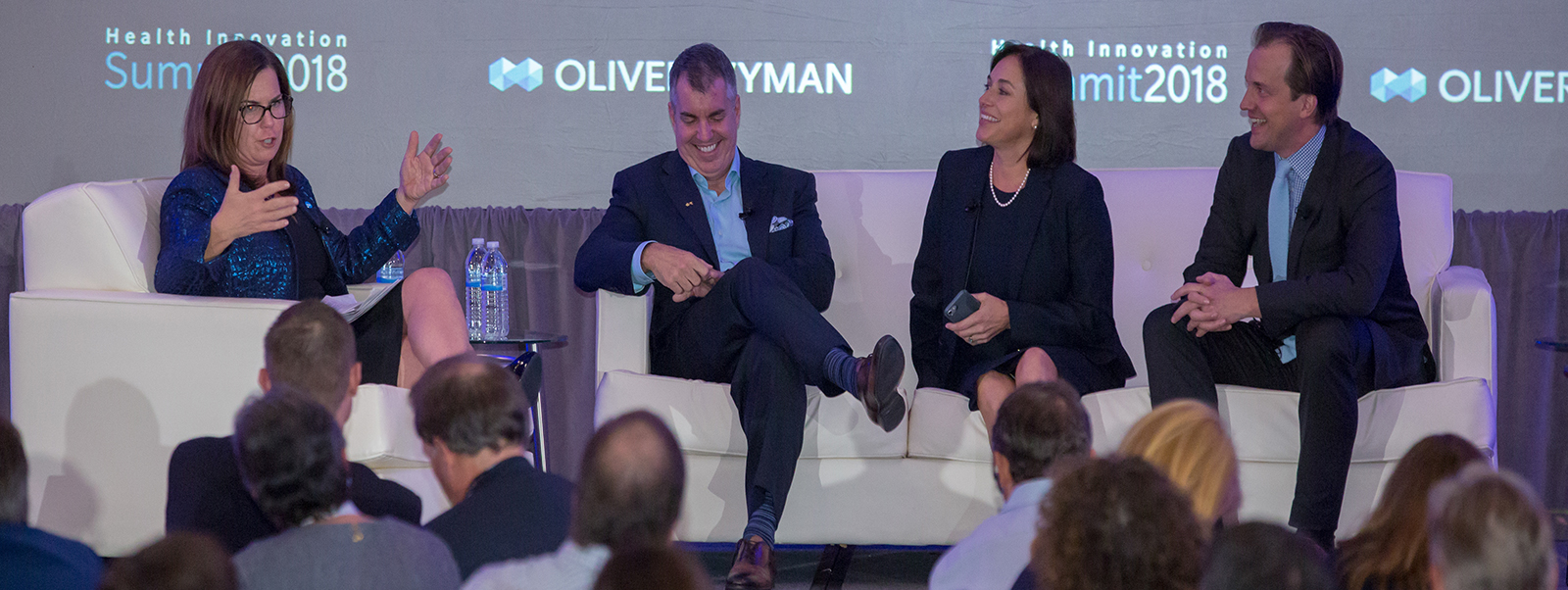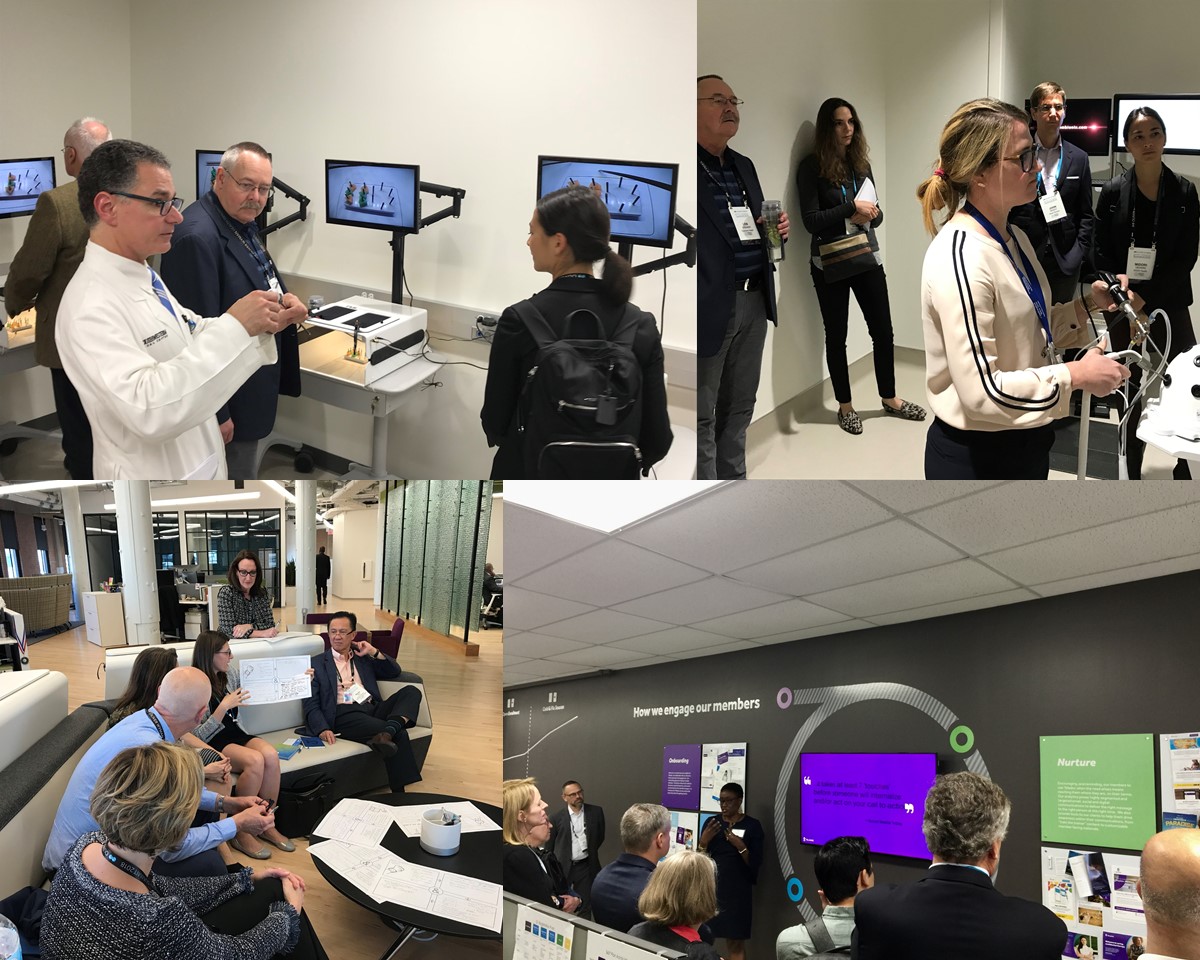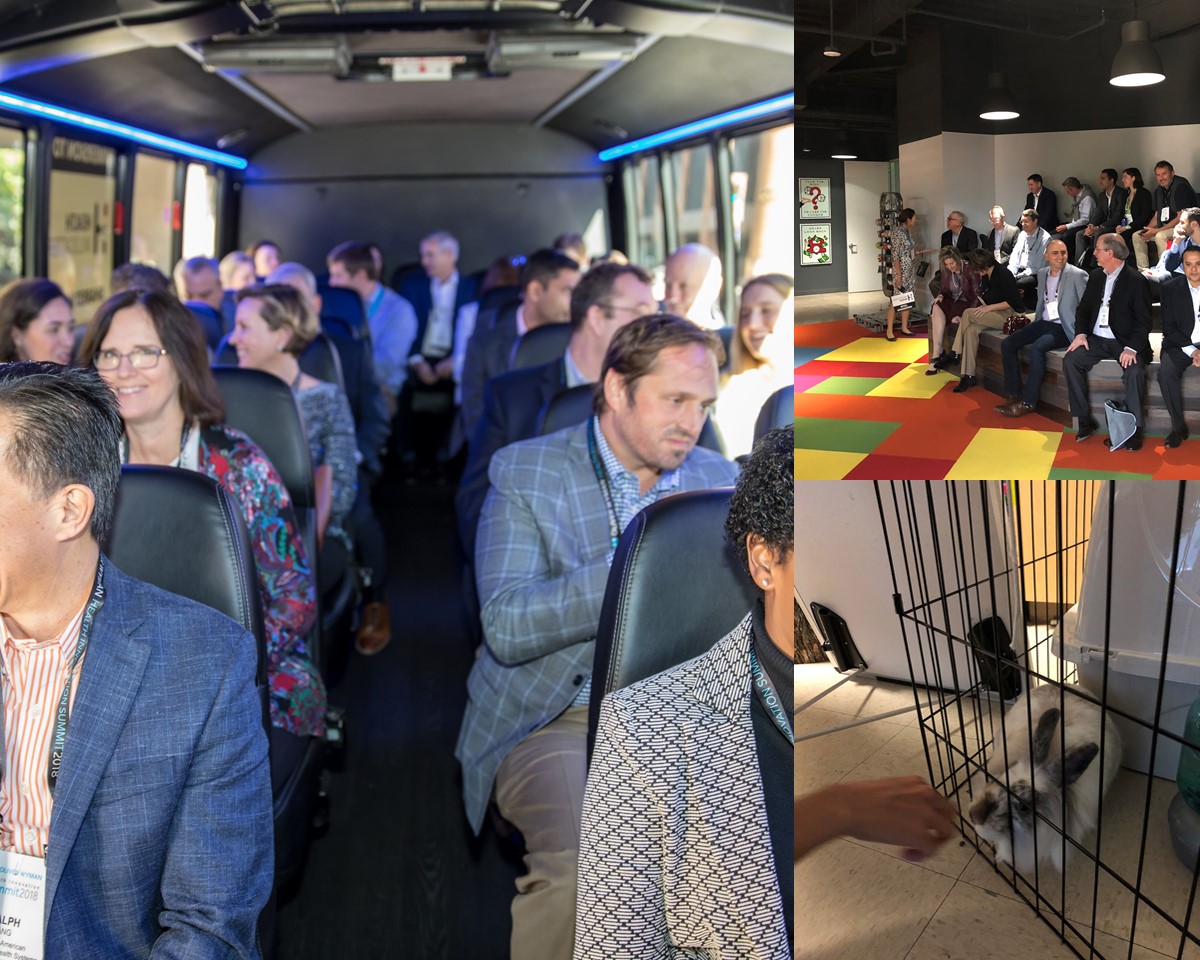Howdy! We’re live from Dallas, where we kicked off day one of the sixth annual Oliver Wyman Health Innovation Summit (#OWHIC). Over 350 healthcare executives come together over three days this week to spark discussions on industry transformation.
Leading tonight's keynote discussion on how to address some of healthcare's biggest challenges - Thinking Big: Finding the Leverage Points to Change an Industry - were Craig E. Samitt, MD, President and CEO of Blue Cross Blue Shield of Minnesota, Karen DeSalvo, MD, MPH, MSc, Professor at Dell Medical School and former Acting Assistant Secretary for the US Department of Health and Human Services, and Sam Hornblower, Producer of 60 Minutes. The discussion, moderated by Terry Stone, Managing Partner of Oliver Wyman's Health & Life Sciences division, focused on identifying some of healthcare's biggest issues, the importance of addressing social determinants of health, and how to spark progress across the greater industry.
Three key takeaways from the first evening's address:
The opportunity to transform care delivery abruptly as opposed to incrementally is viable if a stronger and smarter incentive structure can be implemented. Where there's a will, there's often a way. But when it comes to healthcare, is there a will to change the status quo in the first place? Here are three discussion points.
We’re an irrational industry now facing competition from those outside the industry, said Craig. “I drive down the street and see signs for hospital wait times. That doesn’t make any sense to me," he explained. “We are not an industry that’s just unenlightened. We’re irrational. And that irrationality is getting in the way of progress.”
"Not all hospitals are trying to fill beds. We’re seeing health systems and payers starting to treat the whole person," said Karen, who emphasized the importance of addressing social determinants of health. “This idea that one clinical system won’t share data with another clinical system — I want us to be laughing about that in a couple of years.”
“We don’t have the guts to break the glass as incumbents when it's the disrupters who will have greater guts,” said Craig.
Interactive tours of five innovative Dallas organizations
To learn first-hand how various organizations in and around Dallas are transforming the health market, executives toured leading healthcare facilities today to experience firsthand some of the most cutting-edge innovations to come to the Midwest thus far. Attendees toured C1 Innovation Lab, Health Wildcatters, Momentous Institute, Teladoc Health, and UT Southwestern Simulation Center.
Here’s an overview from each tour experience:
The C1 Innovation Lab's tour focused on how empathy is the springboard for innovation. One key discussion point was how consumer-centricity fits into a provider-driven healthcare world.
"At the end of the day, the patient still wants to know, 'Who can answer my question?'" said Carla Raynor, Vice President of Strategic Marketing at BlueCross BlueShield of Tennessee.
Human-centered methodology is about having empathy at the core of what we do, C1 Innovation Lab emphasized. Design-focused thinking, they said, keeps them grounded in the customer experience. Co-locating the case team means being able to respond in real-time, aided by physical proximity. Think bigger in terms of what the customer needs, they advised. It's what's happening in the larger system of people surrounding a patient that matters.
At Health Wildcatters, a start-up accelerator that provides investment and key resources to support healthcare entrepreneurs, cohorts participate in a highly selective twelve-week program where they are offered mentor support and specialized networking, paired with access to collaborative space and support services.
Chief Executive Officer and Co-founder, Hubert Zajicek, MD, MBA, and Operations Program Manager, Loren Bolton, spoke to attendees about the types of start-ups thriving under their wing and how Health Wildcatters is funded. Loren led tour attendees in a pitch experience where three participants presented speed pitches. Afterwards, two start-up Chief Executive Officers in residence, SPPARE.ME and MycoDART-PCR, presented business pitches.
Momentous Institute's model for learning is based on the premise of offering children who have suffered trauma safe relationships with trusting and caring adults when they’ve grown up with no one to truly look up to. Regarding the makeup of Momentous Institute's student body, eighty-seven percent of their children are eligible for free and reduced lunch.
Here, social health and academics unite as one. Children as young as three years of age are taught about how the brain regulates emotions. Students are taught at an early age to manage their stress by connecting internally to their deeper selves and emotions through meditation, yoga, and breathing exercises.
Students also have choice over what they want to learn, and when, to maximize greater well-being. "We don’t organize activities. We have English as a Second Language [ESL] classes — when students ask for them," they explained. This mindset ensures students are more likely to take risks as adults.
Movement is also a huge part of overall health and wellness at Momentus Institute. "Kids are only seated at a desk when they have laptops. Students in the upper grades have standing desks," they explained.
The educators, not only the students, are offered mental health guidance. For instance, therapists work directly with teachers to help them deal with things that may be triggering for them personally when working in a classroom environment with low-income students who have suffered traumatic experiences.
“A teacher can’t teach mindfulness if they’re not mindful," they emphasized.
At the Teladoc Health tour, attendees experienced how a state-of-the-art virtual care provider is using a single platform to transform how, where, and when consumers receive care. Teladoc senior leaders shared the expansive array of clinical services offered through the platform and how they are using new technology to improve the consumer experience, such as using artificial intelligence to predict wait times for consults nationwide.
Teladoc also discussed the importance of nurturing member engagement through eligibility awareness and reaching members both at home and in the moment of medical need. From a clinical quality perspective, they noted a great benefit of virtual care is that patients are not limited by the standard practices of the geographic areas where they live. And in terms of the technology, consumers are already acclimated to mobile communications - such as texting, phone calls, and video - from a range of different industries.
During the fifth tour, UT Southwestern Simulation Center, attendees were told, “There's a need for objective standards, not how many friends you have or if you are president of [a company]. There should be real data driven by outcomes.”
“The heterogeneity of experiences is a huge issue. How do you focus on making certain everyone performs at a certain level?" they asked. "In medicine, there is no coaching. No one is there to mentor you on whether or not you are an outlier."
“Our aim is that everyone can practice to the point of self-sufficiency. When they finish their training, everyone should be at the same standardized level," they explained. "We cover all sorts of scenarios - including emergency C-sections, breech, and neonatal resuscitation - the more real the experience, the better the training."
Simulation that focuses on self-reflection, they emphasized, improves outcomes, reduces costs, and improves patient experiences.
Stay tuned for tomorrow's recap with more breaking conversations on the business of transforming healthcare.



